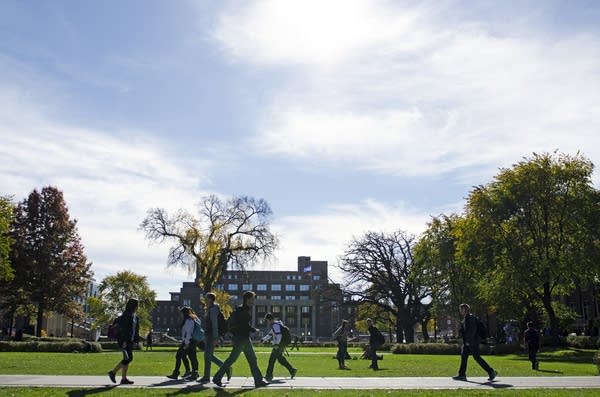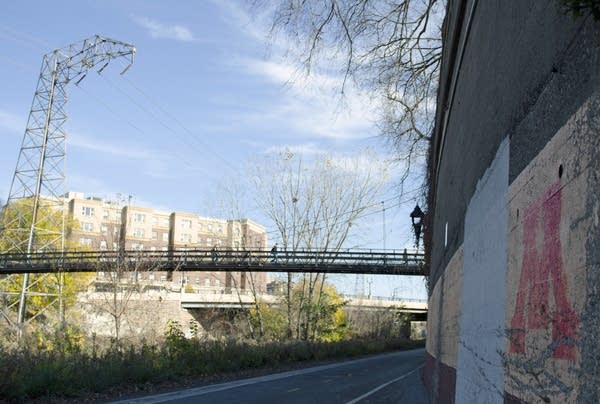Myriad options, pressures can silence sex assault victims

Go Deeper.
Create an account or log in to save stories.
Like this?
Thanks for liking this story! We have added it to a list of your favorite stories.
When a university student is sexually assaulted, there's the physical and psychological trauma they face.
Then there's another big question: what to do about the perpetrator.
But after a sexual assault, victims face daunting, sometimes convoluted ways to pursue justice — and a surprising number of them choose not to go to police.
Student victims — if they choose to report their assault — can go to campus investigators, the police or both.
Turn Up Your Support
MPR News helps you turn down the noise and build shared understanding. Turn up your support for this public resource and keep trusted journalism accessible to all.
The University of Minnesota's Aurora Center, which advocates for victims, has received more than 1,000 sexual assault reports since 2010, said Katie Eichele, the center's director.

At the U's Twin Cities campus, the number of students who said they'd been sexually assaulted grew from 23 percent to 32 percent between 2013 and 2015, according to the anonymous College Student Health Survey. The U defines sexual assault as "actual, attempted or threatened sexual contact with another person without that person's affirmative consent."
However, most sexual assaults reported don't ever get to the justice system.
"I would say that less than 50 percent of the individuals who come to us will report to the university," Eichele said, "and even less than that — and I think the national statistic for college campuses is about 12 percent — who end up reporting to law enforcement."
At the U, if a student wants to keep the investigation on campus, the Aurora Center can recommend they file a complaint with the Office of Equal Opportunity and Affirmative Action.
That can start an investigation under Title IX, the federal law prohibiting sex-based discrimination in education. Those investigations can lead to discipline for perpetrators, including expulsion.
Campus investigations differ from criminal ones in how evidence is weighed. On campus, if the evidence shows there's a better chance than not that the incident occurred, the perpetrator can face discipline.
But campus investigations at the U and elsewhere have been criticized for taking too long or not providing enough support and communication with victims.

There are other hurdles in the criminal justice system.
"These are very hard cases," said Hennepin County Attorney Mike Freeman. "But most alleged rapes occur between two people and only two people. Most rape cases there are no witnesses. Most rape cases are between people who know each other. Most of these rape cases then, turn on the issue of consent."
Still, Freeman said his office will pursue these cases and he wants to stand by victims.
"We need people to come forward. We need them to be courageous enough to do that, on the other hand we do respect the fact that a young woman may not want to go through all this. We do a lot of things to protect them and we have wonderful advocates that work with them."
Anna Voremberg, managing director for the national group End Rape on Campus, said victims can feel questioned in the process, despite the fact that rates of false reporting in rape cases are estimated at 2 to 8 percent.
But often, she said, community reaction can lead victims to question speaking out.
"People are saying 'Keep quiet' or 'What about him?' if the assailant is a man," Voremberg said. "So oftentimes, by the time they've even gone through the possibility of seeking justice through a formal process, often times they have been re-traumatized again."
Minnesota now requires all college campuses to collect data on sexual assault complaints, discipline and warning. The first set of data is expected to be released in December.



